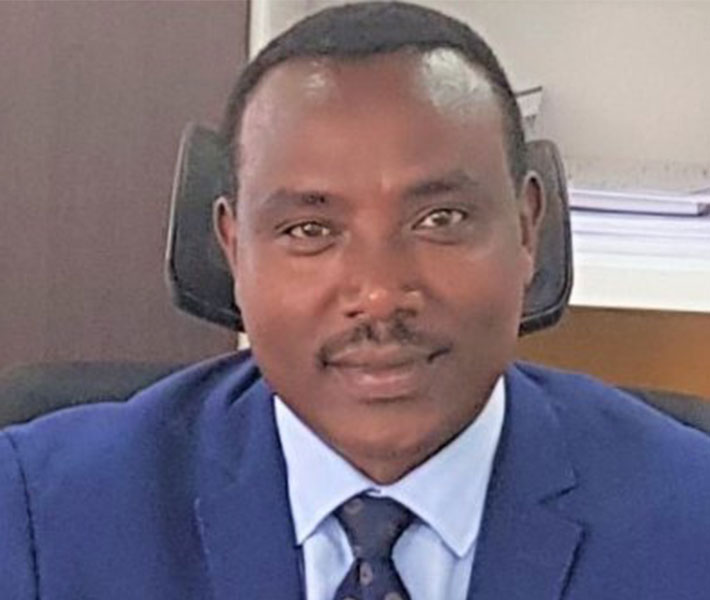
My Opinion | Sep 10,2023
May 18 , 2024
By Hintsa Andebrhan
Two weeks ago, the U.S. State Department made a customary diplomatic trip to address the political crisis in several countries in the Horn of Africa, aspiring to shape the region according to Washington’s strategic interests.
The Special Envoy for the Horn of Africa, Mike Hammer, travelled from Washington to Nairobi, engaging in discussions with senior Kenyan officials about the political instability in Ethiopia, particularly implementing the Pretoria Peace Accord. He held talks with senior officials from the African Union (AU) in Addis Abeba, where he also urged Ethiopia’s leaders to end the violence and displacement of civilians due to the conflicts in the Amhara and Oromia regional states.
Simultaneously, Tom Perriello, the special envoy for Sudan tasked with coordinating U.S. policy on Sudan, visited Uganda, Kenya, Egypt, and Saudi Arabia. He met with Washington’s main partners in these countries to advance efforts to end the Sudanese conflict. Meanwhile, J. Peter Pham, former U.S. ambassador and special envoy for the Sahel region, is reportedly shaping White House policy on Chad and the broader Sahel region.
Washington’s recent moves demonstrate its determination to fortify and sustain its national interest in and toward the African continent. However, questions arise about the AU’s increasing hope of looking towards the White House and other Western capitals for solutions to the political turmoil in its member states rather than adhering to its charter designed to address Africa’s problems. Its predecessor, the Organisation of African Unity (OAU), was formed in May 1963 and later transformed into the African Union 39 years later to make the continent a relevant international political and economic player. Yet, the current political and economic crises besieging African countries challenge this vision.
The Democratic Republic of Congo, for instance, remains entrenched in a devastating crisis, part of a series of civil wars that have roots in Cold War proxy conflicts between the Soviet Union and the United States. Following the assassination of President Laurent-Desire Kabila in 2001, the country’s political situation has worsened. Continuous conflicts, health crises like Ebola, and persistent instability plague the country, with the AU offering little beyond lip service.
In Libya, the situation took a drastic turn in March 2011 when a NATO-led coalition initiated a military intervention, legitimised by UN Security Council Resolution 1973. It resulted in the slaying of its leader and the eventual collapse of the Libyan state. Despite the African Union’s Charter, the organisation failed to support the Libyan people during their trying times.
Somalia has also been a perpetual concern for the AU since 1991, yet the AU has struggled to resolve the crisis in Mogadishu. The renewed instability and acts of terrorism have yielded the AU’s efforts largely ineffective, often overshadowed by Western countries’ proposals that fail to address the root causes of the conflict.
The longstanding conflict between Ethiopia and Eritrea, which persisted for two decades in a state of neither war nor peace, was ultimately influenced by former President Trump’s bold policy shift. Without this intervention, the AU might have continued to struggle to broker peace between the two countries.
These are a few illustrations of AU’s haplessness in the face of the continent’s myriad political and economic disasters. Its leaders increasingly rely on Western guidance to respond to the upheavals, putting the efficacy and institutional independence in question to meet its foundational objectives. Moussa F. Mahamat, the chairperson of the African Union Commission, is set to step down early next year. Djibouti, Kenya, and Somalia have put their candidates forward to succeed him. However, merely changing the chairperson is unlikely to bring change worth discussing.
The founders of the OAU envisioned an organisation dedicated to freeing Africans from colonialism, preserving the sovereignty and territorial integrity of member countries, and upholding African dignity. Yet, under Mahamat, the AU appears to have fallen short of this vision, often seen as ineffective in addressing the continent’s critical issues.
Why has the AU become a Union that is good for nothing?
The answer lies in its incapacity to assert autonomy, dependence on external actors for solutions, and failure to implement its charter effectively. Without a significant change in strategy and leadership, the AU risks remaining in the shadow of Western influence, unable to fulfil its potential as a unifying force for the continent. The continent requires a fundamental shift in approach to achieve political and economic stability.
Hintsa Andebrhan (hintsa1974@gmail.com) worked as a researcher with the United Nations Population Fund and IPAS International Ethiopia.
PUBLISHED ON
May 18,2024 [ VOL
25 , NO
1255]


My Opinion | Sep 10,2023

Radar | Dec 25,2023

Radar | Nov 28,2021

My Opinion | Apr 13,2024

Commentaries | Nov 12,2022

Viewpoints | Oct 05,2019

Viewpoints | Oct 30,2022

Addis Fortune | Nov 04,2020


Fortune News | Sep 13,2025

Photo Gallery | 180356 Views | May 06,2019

Photo Gallery | 170554 Views | Apr 26,2019

Photo Gallery | 161592 Views | Oct 06,2021

My Opinion | 137276 Views | Aug 14,2021

Dec 22 , 2024 . By TIZITA SHEWAFERAW
Charged with transforming colossal state-owned enterprises into modern and competitiv...

Aug 18 , 2024 . By AKSAH ITALO
Although predictable Yonas Zerihun's job in the ride-hailing service is not immune to...

Jul 28 , 2024 . By TIZITA SHEWAFERAW
Unhabitual, perhaps too many, Samuel Gebreyohannes, 38, used to occasionally enjoy a couple of beers at breakfast. However, he recently swit...

Jul 13 , 2024 . By AKSAH ITALO
Investors who rely on tractors, trucks, and field vehicles for commuting, transporting commodities, and f...

Nov 1 , 2025
The National Bank of Ethiopia (NBE) issued a statement two weeks ago that appeared to...

Oct 25 , 2025
The regulatory machinery is on overdrive. In only two years, no fewer than 35 new pro...

Oct 18 , 2025
The political establishment, notably the ruling party and its top brass, has become p...

Oct 11 , 2025
Ladislas Farago, a roving Associated Press (AP) correspondent, arrived in Ethiopia in...

Nov 2 , 2025
The National Bank of Ethiopia (NBE) has scrapped the credit-growth ceiling that had s...

Nov 2 , 2025 . By SURAFEL MULUGETA
The burgeoning data mining industry is struggling with mounting concerns following th...

Nov 2 , 2025 . By YITBAREK GETACHEW
Berhan Bank has chosen a different route in its pursuit of a new headquarters, opting for a transitional building instea...

Nov 2 , 2025 . By BEZAWIT HULUAGER
Nib International Bank S.C. has found itself at the epicentre of a severe governance...